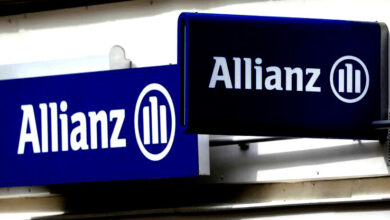BYD Electronics Unit Acquires Jabil’s Smartphone Manufacturing Business in China for $2.2 Billion

Chinese automaker BYD (SZ:002594) announced on Monday that its electronics division has successfully completed an agreement with U.S.-based manufacturer Jabil Inc to purchase its mobile electronics manufacturing operations in China for a total of 15.8 billion yuan ($2.2 billion).
This strategic deal marks a significant expansion for BYD Electronics (BE), enabling the company to broaden its customer base, diversify its product range, and strengthen its smartphone components segment, all aimed at capitalizing on the anticipated growth within the sector.
Jabil Circuit (NYSE:JBL), headquartered in Singapore and known for its expertise in producing printed circuit boards, recently established a dedicated unit that consolidated its product manufacturing ventures in Chengdu and Wuxi. These ventures are now slated to be acquired by the Chinese corporation.
Following the announcement, shares in BYD Electronics initially experienced a decline of up to 9% on the Hong Kong stock market, but they managed to reverse this trend, ultimately registering a 0.5% increase by the afternoon session. Concurrently, the broader market recorded a 1.5% rise. The stock of BYD’s parent company, listed in Hong Kong, demonstrated a 0.9% gain.
Although primarily renowned for its electric vehicle endeavors today, BYD initially entered the market by selling electronic components. Notably, in 2007, BYD Electronics debuted on the Hong Kong Stock Exchange.
A central focus of BE’s operations revolves around selling electronic components used in consumer electronics, including smartphones and laptops. This division represents one of the pivotal segments for BYD Electronics, contributing to over 70% of its total revenue in the preceding year.
Tu Le, the founder of Sino Auto Insights, commented, “For BYD, I think it’s a reminder that they do more than just dominate in EVs.” Le added that BYD holds a substantial position within the mobile supply chain, serving as a supplier to major companies such as Apple Inc (NASDAQ:AAPL).
Citi analysts indicated that the agreement likely includes the acquisition of Jabil’s Green Point metal casing operations in Wuxi. They further speculated that this deal could enhance BE’s presence in Apple’s casing supply chain, leading to a higher market share.
The acquisition costs are projected to be funded through a combination of loans and equity issuance, according to Citi analysts. Neither BYD nor BE disclosed the specifics of their financing approach for this transaction.
Both BE and Jabil refrained from immediate comments in response to requests for additional details about the agreement.
BYD stated in an exchange filing, “While improving BE’s market share of products, the acquisition will effectively synergize with BE’s existing products, enhance the overall competitiveness, ensure long-term sustainable development,” without divulging more information about the deal.
Should the transaction be successfully finalized, Jabil’s CEO Kenny Wilson highlighted that it would enable the company to “enhance our shareholder-centric capital framework, including incremental share buybacks.”
This strategic move would also grant Jabil the opportunity to further invest in a range of industries, including “electric vehicles, renewable energy, healthcare, AI cloud data centers, and other end-markets,” according to Wilson’s statement.
Jabil Circuit has a strong presence in sectors like healthcare, telecommunications, computing, and storage, with a commitment to driving supply chain intelligence, as outlined on its official website.
BYD’s initial foray into the automotive industry occurred in 2003 when it acquired Qin Chuan, a Nanjing-based automaker with a car manufacturing permit. The company subsequently launched its first car model three years later.
(Conversion rate: $1 = 7.2890 Chinese yuan)





